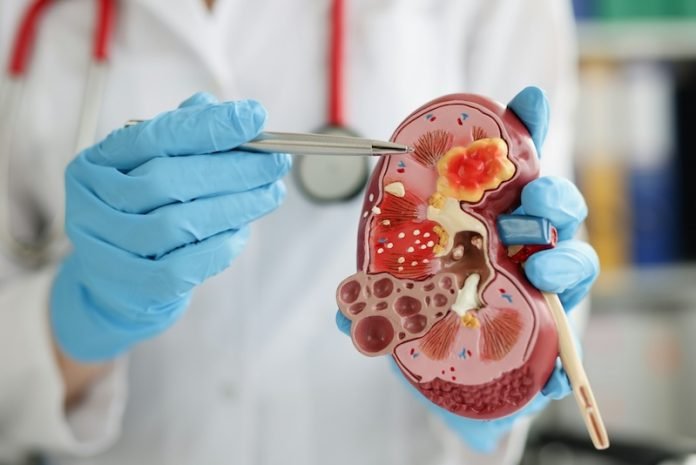
In a recent leap forward in the treatment of chronic kidney inflammation, also known as glomerulonephritis, a team of researchers from the University Medical Center Hamburg-Eppendorf and elsewhere have uncovered a promising new treatment method.
Published in Nature Communications, their study reveals that certain forms of Vitamin B2 can significantly alleviate kidney inflammation in mice, potentially paving the way for new treatments in humans.
At the heart of this research are mucosal-associated invariant T cells (MAIT cells), a type of immune cell found in mucosal tissues like the intestine and lungs.
The study demonstrates that when these cells are activated by metabolites of Vitamin B2 and B9, they can play a crucial role in protecting the kidneys from disease.
Professor Jan-Eric Turner highlighted the presence of MAIT cells in both healthy and inflamed human kidneys, emphasizing their activation by certain cells in the kidneys as critical to their protective role.
The potential therapeutic applications of this discovery are vast. In their experiments, the research team administered a synthetic form of a Vitamin B2 metabolite to mice, which acts similarly to the natural substance that activates MAIT cells.
This treatment led to a noticeable reduction in the progression of glomerulonephritis. Professor Christian Kurts noted the significance of this finding, suggesting that it could enhance existing treatments or possibly allow for lower doses of current medications.
However, he also cautioned that more research and clinical trials are needed before this method can be applied to human patients.
This study marks a significant advancement in the management of chronic kidney diseases. By focusing on the unique role of MAIT cells and the impact of Vitamin B2 derivatives, the researchers have unveiled new possibilities for more effective treatments.
These could potentially complement existing therapies, leading to better outcomes for individuals with chronic kidney conditions.
The implications of this research extend beyond kidney health, offering insights into the broader field of immunology and the treatment of chronic diseases.
As we await further studies and the potential for clinical trials, this discovery stands as a beacon of hope for those affected by chronic kidney inflammation, signaling a future where more effective and targeted treatments are available.
If you care about nutrition, please read studies about the best time to take vitamins to prevent heart disease, and vitamin D supplements strongly reduce cancer death.
For more information about nutrition, please see recent studies about plant nutrient that could help reduce high blood pressure, and these antioxidants could help reduce dementia risk.
Copyright © 2024 Knowridge Science Report. All rights reserved.



